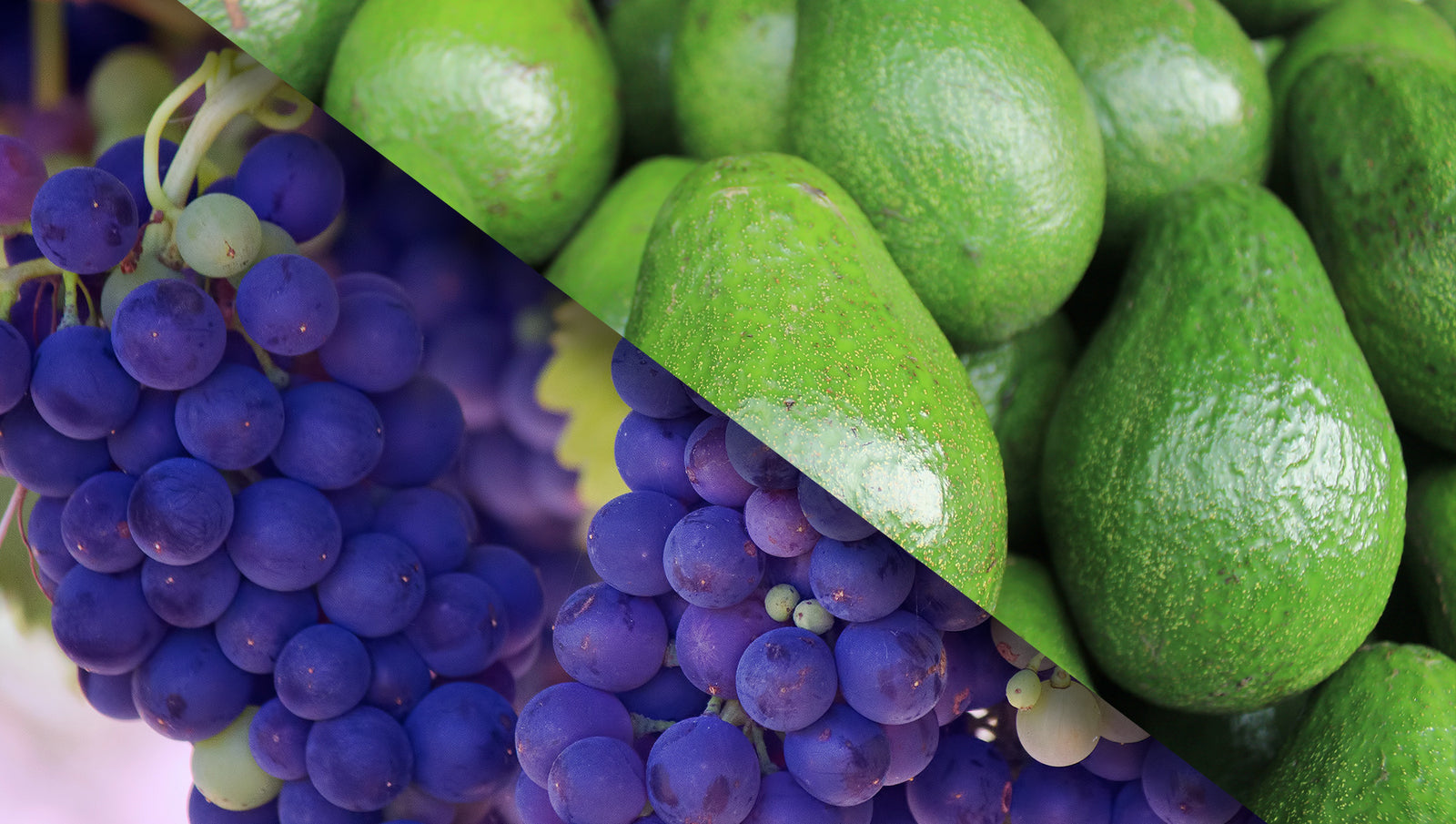Your Cart is Empty

Inflammation. Even the word sounds offensive, and, well... inflammatory. If you experience any sort of inflammation, be it from an injury, arthritis or other condition, you know how easily it can throw you off your game.
Luckily, you don't have to take handfuls of narcotics to achieve a good level of relief. Believe it or not, certain foods and drinks, including avocados and red wine, can help to actually lessen the body's unwarranted inflammatory response.
Inflammation is a pretty complex process that starts at a cellular level. Basically, inflammation is an immune response to something the body interprets as a threat - for instance, a bee sting will swell. This is the body's way of dealing with the sudden introduction of toxins and its attempt to neutralize and carry away the offending foreign material.
Or, say you twist your ankle and it balloons up. At the first sign of trauma, your body may not know the extent of the injury, but it sends a variety of immune cells to the point of injury to destroy anything that might be amiss (think of a compound fracture that introduces potentially harmful bacteria, etc., into the wound). It also works to start healing the damage right away. This is a normal immune response and how inflammation is supposed to work.
Then there's the flip side of the coin, when your body goes into overdrive and misinterprets a threat, attacking its own healthy tissues. This is frequently referred to as an autoimmune response.
Conditions such as rheumatoid arthritis (more than 1.3 million Americans have RA), lupus, psoriasis and Hashimoto's thyroiditis are just a few of the autoimmune disorders that people frequently suffer from.
Osteoarthritis is not typically an autoimmune issue but can trigger the same sort of reaction when the degeneration of soft and bone tissues have reached the point of constant irritation.
Interestingly, certain foods can also trigger this immune response - sugar is the biggest culprit. Sugar creates insulin secretion spikes when a large amount of glucose is detected by the body. When insulin is released in bigger quantities, the cytokines (cells that act as "scouts" looking for abnormalities) mistakenly assume something bad is happening and call in the immune troops. This results in an increase in inflammation.
Okay, so what can you do about it?
You Plus Relief is the world's most powerful 100% natural pain relief cream. It's designed to help your body heal by fighting inflammation in multiple pathways.
 Adding avocados to your diet regularly can help decrease your inflammation. Hass avocados are the most commonly available variety of avocado and have some pretty amazing health benefits.
Adding avocados to your diet regularly can help decrease your inflammation. Hass avocados are the most commonly available variety of avocado and have some pretty amazing health benefits.
In the last decade or so, avocados have become the golden child of the nutritional world. This isn't unfounded - these homely little fruits are actually one of the most powerful foods you can add to your diet to bring about a number of positive results.
Here are a few things you may not know about avocados:
Avocados can actually help reduce inflammation you might experience from the foods you eat (namely, those that cause insulin spikes), as seen in this video:
If you're not a fan of avocado on its own, try blending one into a fruit smoothie or using pureed avocado in your favorite chicken salad in lieu of mayo.

Red wine may truly be one of the most versatile libations out there when it comes to the varied health benefits.
Numerous studies have found that it reduces the risk of ischemic heart disease and age- and cholesterol-related cardiovascular disease when consumed in moderation (over-consumption can actually contribute to vascular issues).
Heart disease is often associated with C-reactive proteins that - you guessed it - are major contributors to inflammation. This is thanks to the polyphenols (compounds that act like antioxidants) naturally found in red wine.
When it comes to combating inflammation, you may just find that a small amount of red wine on a semi-regular basis can help ease your aches and pains. This is due in large part to the most powerful of the polyphenols - resveratrol. Resveratrol is the same active component that aids in helping prevent cardiac and vascular issues. It is a strong anti-inflammatory agent and, when consumed regularly, it can markedly reduce the symptoms associated with chronic inflammation. In fact, in a study on the use of antioxidants for inflammation treatment, it was found that resveratrol can actually suppress the immune cells that cause unwarranted inflammatory responses.
If you're not a wine fan, you're still in luck. Resveratrol is available in supplement form and can be found in foods such as blueberries, pistachios, and grapes. As with any health supplement, it's a good idea to talk with your health care provider prior to taking any new vitamins or supplements.
When you're suffering from chronic inflammation, be it due to arthritis, an old injury or an autoimmune disease, you want to find ways to help your body. Supplementing your current routine with a natural approach can get you closer to a pain-free life - a life worth living to its fullest!